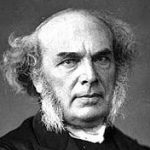Lesson Focus: This lesson is about the greatness of servanthood. Jesus lifted up the value and importance of servanthood and called us to use whatever He has given us in service, especially service to the “least of these” [Matt. 25:40].
Redefine Greatness: Mark 10:42-45.
[42] And Jesus called them to him and said to them, "You know that those who are considered rulers of the Gentiles lord it over them, and their great ones exercise authority over them. [43] But it shall not be so among you. But whoever would be great among you must be your servant,
[44] and whoever would be first among you must be slave of all. [45] For even the Son of Man came not to be served but to serve, and to give his life as a ransom for many." [ESV]
[41-44] Not surprisingly, the other apostles became indignant at James and John. Their indignation may owe to the fact that they harbor similar ambitions, but it also owes to the fact that the request of the Zebedee brothers excludes them from the closeness of fellowship in glory that they presently enjoy with Jesus. Jesus seizes the occasion to teach a lesson of supreme importance. The world, says Jesus, practices leadership from a model of dominance, authority, and the effective uses of power and position. Jesus rejects this model. Verse 43 is not an admonition to behave in a certain way as much as a description of the way things actually are in the kingdom of God, and even among disciples of the kingdom. Thus, to fail in being a servant is not simply to fall short of an ideal condition but to stand outside of an existing condition that corresponds to the kingdom of God. At no place do the ethics of the kingdom of God clash more vigorously with the ethics of the world than in the matters of power and service. The ideas that Jesus presents regarding rule and service are combined in a way that finds no obvious precedent in either the Old Testament or Jewish tradition. In a decisive reversal of values, Jesus speaks of greatness in service rather than greatness of power, prestige, and authority. The preeminent virtue of God’s kingdom is not power, not even freedom, but service. Ironically, greatness belongs to the one who is not great, the bondservant [44]. The preeminence of service in the kingdom of God grows out of Jesus’ teaching on love for one’s neighbor, for service is love made tangible. The idea of a slave being first is as absurdly paradoxical as a camel going through the eye of a needle [25], and it probably likewise induced smiles and shaking heads from Jesus’ audience. The desire for power and dominance focuses attention on self and this kills love, for love by nature is focused on others.
[45] What Jesus teaches about service and self-sacrifice is not simply a principle of the kingdom of God but a pattern of His own life that is authoritative for and transferable to disciples. The for at the beginning of verse 45 is strongly purposive: disciples should adopt the posture of servants and slaves not on the basis of ethical reasoning but because it is the posture of the Son of Man. The life to which the gospel calls believers is not an ethical system but the way of the Lord, of which Jesus is the pattern and incarnation. This model of ministry cannot come from the secular order, but only from the unique way of Jesus, which defies the logic of this world and its fascination with dominance, control, yields, results, and outcomes. The key to the model both incarnated and commanded by Jesus is in the verbs serve and give. The reason why a servant is the most preeminent position in the kingdom of God is that the sole function of a servant is to give, and giving is the essence of God. Verse 45 is crucial not only for Mark’s portrait of Jesus but also as a look into Jesus’ self-consciousness. It echoes the spirit, if not the exact wording, of Isaiah’s Servant of the Lord [Isaiah 53]. The many is not a select and worthy few; rather, in its five uses in Isaiah 53 the expression refers to the very transgressors and sinners for whom the Servant pours out his life. In Isaiah 52:15 it refers expressly to many nations, that is, the Gentiles, the non-elect outsiders. This is an important affirmation, for the only other hints of vicarious atonement in the Jewish tradition limit it to Israel alone, whereas the many of Isaiah’s Servant and of Jesus includes Gentiles as well as Jews. The most distinctive role of the Son of Man, however, is His giving His life as a ransom. In the language of the day, ransom referred to bail paid for prisoners of war and slaves, or release from jail. The thought of verse 45 actually exceeds the teaching of Isaiah’s Servant of the Lord, for Jesus is not a passive instrument of Yahweh. The initiative of His atoning work lies within Himself as the Son of Man, who, in stark contrast to the power-mongerers of verse 42, freely offers His life as the ransom price for all. As God’s own delegate, and through His suffering, death, and resurrection, Jesus freely and obediently offers His life as a substitute in behalf of humanity. Jesus is supremely conscious of offering a payment to God that can be offered by no one else. The ransom Jesus offers in His life is not contingent on something outside Himself. The death of the Son of Man on behalf of the many is a sacrifice of obedience to God’s will, a full expression of His love, and a full satisfaction of God’s justice.
SUMMARY. Once again a misunderstanding of the disciples [10:35-40] serves as the occasion to teach the ethic of the kingdom of God. In stark contrast to this world’s value system, Jesus teaches that greatness in God’s kingdom involves not being master or lord over others but being a servant or slave. Unfortunately, over the centuries the model for Christian leadership, which is Jesus’ own servanthood unto death, has been lost sight of and ignored, and the desire for honor, prestige, and power has dominated. In the present day, when the pattern often suggested for Christian leaders is that of a CEO ruling over a corporation, the model of Jesus as a servant leader cannot be emphasized enough. Those who aspire to greatness in the kingdom of God should have this example of Jesus for their model. For a Christian, there is less need to reflect on the hypothetical question of “What would Jesus do?” than to reflect on the actual “What has Jesus done?” We should be careful not to let our familiarity with the gospel story dull the revolutionary nature of this teaching. It is the way of the cross [8:34], the way of servanthood and slavery, that leads ultimately to glory!
Seize Your Opportunities: Matthew 25:19-21,29.
[19] Now after a long time the master of those servants came and settled accounts with them.
[20] And he who had received the five talents came forward, bringing five talents more, saying, ‘Master, you delivered to me five talents; here I have made five talents more.’ [21] His master said to him, ‘Well done, good and faithful servant. You have been faithful over a little; I will set you over much. Enter into the joy of your master.’ [29] For to everyone who has will more be given, and he will have an abundance. But from the one who has not, even what he has will be taken away. [ESV]
[19-21] This parable is about an absentee master. As the scene is set, three slaves are entrusted with the master’s resources, according to their individual abilities. A talent was originally a measure of weight and is variously estimated at fifty to seventy-five pounds. As a monetary term, its value also varied, but it always implied a very large sum. A day laborer would have to work more than nineteen years to earn one talent. Five talents is a huge fortune, perhaps unrealistically so, which may imply the greatness of God’s gifts to His people. The matter of delay in the master’s return occurs for the third time in the context [see 24:48; 25:5]. When he arrives after a long absence, the slaves are called to account for his resources. This evidently portrays the final judgment. Each of the first two slaves demonstrates his 100 percent profit and is described by the master as good and faithful. The master heartily rewards their faithfulness with relatively little by assigning them much more. Entrance into the master’s joy probably portrays entrance into the eschatological feast that inaugurates the reign of Jesus on earth. The greatest joy of a follower of Jesus is to share in the joy of Jesus. Both servants receive the same reward even though the first accomplished quantitatively more than the second. This shows that the characteristic of fidelity is rewarded, not merely numerical success.
[29] After his dialogue with the third slave in verses 24-27, the master now gives orders concerning him. The single talent will be taken from him and given to the first servant, who will have eleven talents. The third slave is useless; he has earned nothing for the master, and his severe punishment is just, since he freely admitted that he knew the master’s disposition. The master’s action may seem harsh, but it is balanced by the generosity of the abundant reward given to the first two slaves. From the first two slaves, one deduces that trustworthiness leads to even greater blessing, but the third slave demonstrates a lack of trustworthiness that leads to removal of the original blessing. There is no excuse for inactivity, since it arises out of fear and sloth, neither of which is compatible with discipleship. Followers of Jesus have been equipped to serve Him and are obligated to use their gifts to extend God’s reign. God will call disciples to account for the stewardship of their individual abilities, nothing more and nothing less.
Serve the Least of These: Matthew 25:34-40.
[34] Then the King will say to those on his right, ‘Come, you who are blessed by my Father, inherit the kingdom prepared for you from the foundation of the world. [35] For I was hungry and you gave me food, I was thirsty and you gave me drink, I was a stranger and you welcomed me, [36] I was naked and you clothed me, I was sick and you visited me, I was in prison and you came to me.’ [37] Then the righteous will answer him, saying, ‘Lord, when did we see you hungry and feed you, or thirsty and give you drink? [38] And when did we see you a stranger and welcome you, or naked and clothe you? [39] And when did we see you sick or in prison and visit you?’ [40] And the King will answer them, ‘Truly, I say to you, as you did it to one of the least of these my brothers, you did it to me.’ [ESV]
[34-36] This appears to be the only passage in which Jesus refers to Himself as King. At the time He was speaking He might well be despised and rejected of men, but in due course He will be sovereign over all. It is He who will pronounce the verdicts over those in either group. First He speaks to those on his right. He calls on them to come and He addresses them as blessed by my Father. He tells them inherent the kingdom where the verb draws attention to a significant aspect of their salvation. Something that is inherited comes to one as a gift, not as the result of one’s own earnings, and that may be why the word is used of the life of the world to come. What they are to inherit is the kingdom, which signifies a sure and accepted place in the kingdom of God. And the kingdom they will inherit is no afterthought, but one prepared for you from the foundation of the world. This strong expression brings out the truth that this has always been in the plan of God. Jesus is not speaking of some afterthought, but of what God had always planned to bring about, and that will come to its consummation at the end of this age. He leaves the sheep in no doubt but that they are entering into a glorious destiny. This should not be overlooked when we come to consider the words commending those who go into the kingdom. He goes on to speak of some of the things they have done in their lives on this earth. Four times this list is repeated in this and the following verses. We should not understand this in the sense that these good works have earned them their salvation; grace is as important throughout this Gospel as anywhere in the New Testament. Jesus is not saying that these are people whose good lives have earned them salvation as their right. He is saying that God has blessed them and brought them into His kingdom and He proceeds to cite evidence that shows that they do in fact belong in that kingdom. The For that begins verse 35 gives the evidence that the sheep will inherit the kingdom, not the reason for them receiving the inheritance. Their lives are evidence that God has been at work in them. Providing food, drink and shelter to a stranger for the glory of Christ is the evidence of a changed heart that results from being called by Jesus to be one of His sheep. These actions can never be the reason for being one of His sheep because our actions are never pure but are always tainted by our sin. And the holy God requires perfection for all those who will dwell in His kingdom for all eternity. This perfection can only come by receiving the perfect righteousness of Christ as a gift.
[37-40] The words of Jesus in verses 35-36 causes confusion among the sheep who are now called the righteous. What God has done in them has transformed them into people who are acceptable in His sight and who accordingly do deeds like those Jesus has listed. They ask when they did all these things; they go through Jesus’ list and inquire when they did each of them, listing them one by one. Their surprise shows clearly that their salvation did not depend on their good works; for in doing those works they must have known that they were doing things that other people did not do. But clearly their kindness to the needy was not in order to gain a reward and merit salvation, but was part of the way they lived in response to what Christ had done in and for them. In verse 40 Jesus again refers to Himself as the King. His answer to the questions of verses 37-39 centers on His identification with the needs of His brothers. This term limits in these verses the caring for the needs of others to the followers of Jesus. But that is just the focus of these verses. Other passages indicate that the followers of Jesus are also to be concerned about the needs of non-believers. But in these verses Jesus is focusing on the close identification He has with all of His followers who are poor and in need.
Questions for Discussion:
1. Contrast the qualities of leadership that the world looks for with those qualities of leadership in the kingdom. How do you apply this teaching when choosing leaders in your local church?
2. Mark 10:45 is a key verse for understanding why God sent His Son to become man. Memorize this verse. What does this verse teach us about why Jesus came?
3. What lesson does Jesus want us to learn from the parable of the master, servants and talents?
4. Think about the quote: “The greatest joy of a follower of Jesus is to share in the joy of Jesus.” What do you need to change in your life in order to experience more of the joy of Jesus? What insight does verses 25:34-40 give you about experiencing the joy of Jesus?
References:
Matthew, David Turner, ECNT, Baker Academic.
The Gospel According to Matthew, Leon Morris, Eerdmans.
The Gospel According to Mark, James Edwards, Eerdmans.
Mark, Robert Stein, ECNT, Baker Academic.

















